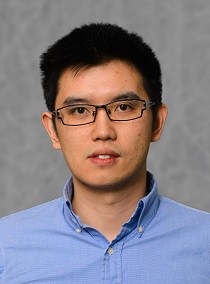[CIS & IES] 5G and Beyond Spectral-Efficient Networks: A Case Study of Software-Defined Cyber-Physical Systems
Abstract: Over the last few years, cyber-physical systems (CPS) with wireless connectivity have enabled a wide range of emerging applications, such as smart home, smart logistics, intelligent transportation, remote health care, precision agriculture, and many among others. However, the practical deployment of CPS faces fundamental challenges including utilizing limited network resources to serve an enormous number of devices and realizing scalable network management for heterogeneous devices. Moreover, regarding considerable wireless connection demands, existing commercial wireless networks rely on closed and inflexible hardware-based architectures, which imposes significant challenges in implementing new techniques to maximize the network capacity and according to coverage and prevents provisioning of truly-differentiated services able to adapt to growing, uneven, and highly variable traffic patterns. For these reasons, as a case study of software-defined CPS, the research objective of this talk is to propose a new software-defined physical architecture for 5G and beyond wireless systems, to develop essential cyber-layer technologies to support and manage the proposed architecture, and to showcase its major benefits by designing novel AI-based resource orchestration solutions. In particular, a Wireless Software-Defined Network architecture is introduced, and its core architectural principles in both physical- and cyber-layers are studied, including the scalable design of software-defined radio access and core networks and new techniques to provide network virtualization. It is demonstrated how this new cellular architecture can guarantee essential properties, i.e., the programmability, cooperativeness, virtualizability, visibility, and openness, and thus serves as the cornerstone of next-generation spectral-efficient networks.
Date and Time
Location
Hosts
Registration
Speakers
 Shih-Chun Lin of Intelligent Wireless Networking Lab, Department of Electrical and Computer Engineering, North Carolina State University
Shih-Chun Lin of Intelligent Wireless Networking Lab, Department of Electrical and Computer Engineering, North Carolina State University
Biography:
Dr. Shih-Chun Lin received the B.S. degree in electrical engineering and the M.S. degree in communication engineering from National Taiwan University, Taiwan, in 2008 and 2010, respectively, and the Ph.D. degree in electrical and computer engineering from Georgia Institute of Technology, Atlanta, USA, in 2017. Currently, he is a tenure-track Assistant Professor with the Department of Electrical and Computer Engineering at the North Carolina State University. His research interests include 5G and beyond wireless systems, software-defined networking, Internet of Things, cyber-physical systems, big-data analytics, and machine learning, wireless sensor networks in a challenging environment, statistical scheduling and mathematical optimization.
Agenda
11:30 - 12:00: Light lunch and social
12:00 - 13:30: Presentation and Q&A


 Add Event to Calendar
Add Event to Calendar